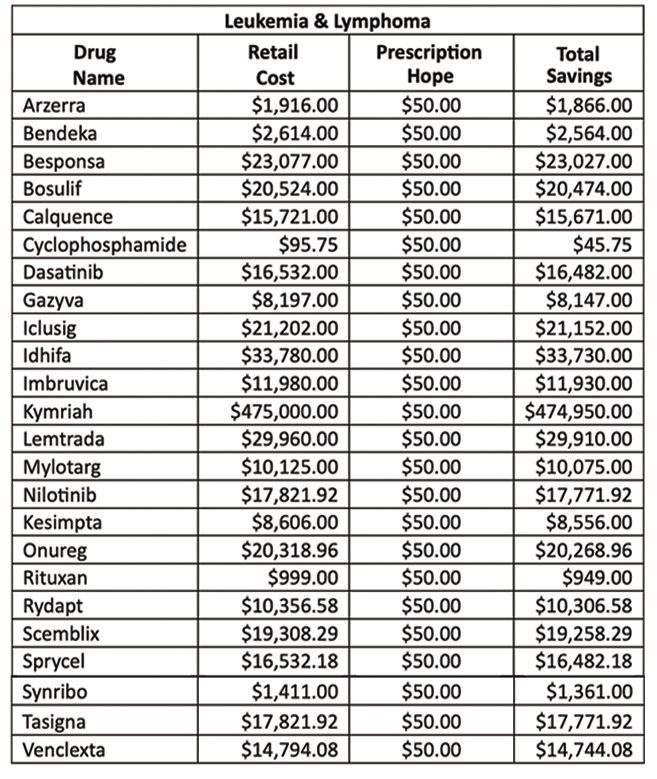Leukemia, a type of blood cancer that affects the bone marrow and blood cells, has long been a formidable challenge in the field of oncology. Over the years, medical advancements have led to the development of diverse treatment options, each targeting specific types of leukemia and offering hope to patients. This article delves into the world of leukemia and cancer treatments, exploring the various medications that play a pivotal role in battling this disease.
Understanding Leukemia and Its Types
Leukemia originates in the bone marrow, where abnormal blood cells are produced in large quantities, crowding out healthy cells and impairing the body’s ability to function properly. There are several types of leukemia, including acute lymphoblastic leukemia (ALL), acute myeloid leukemia (AML), chronic lymphocytic leukemia (CLL), and chronic myeloid leukemia (CML).
Traditional Treatments and Their Limitations
Historically, chemotherapy and radiation therapy have been the primary treatments for leukemia. While effective in many cases, these treatments often come with side effects due to their non-specific nature, impacting both healthy and cancerous cells. The pursuit of targeted therapies has led to a revolution in cancer treatment.
Targeted Therapies: A Precision Approach
Targeted therapies are medications designed to specifically target the genetic mutations or proteins that drive cancer growth. Tyrosine kinase inhibitors (TKIs) are a class of targeted therapies commonly used in the treatment of chronic myeloid leukemia (CML) and some forms of acute lymphoblastic leukemia (ALL). These medications block the signals that promote abnormal cell growth, leading to more focused and effective treatment with fewer side effects.
Immunotherapy: Harnessing the Immune System
Immunotherapy has emerged as a groundbreaking approach in leukemia treatment. Monoclonal antibodies, such as rituximab and alemtuzumab, are designed to attach to specific proteins on cancer cells, marking them for destruction by the immune system. Chimeric antigen receptor (CAR) T-cell therapy takes immunotherapy a step further by engineering a patient’s own immune cells to recognize and attack cancer cells.
Stem Cell Transplantation: Rebuilding the Immune System
For certain cases of leukemia, stem cell transplantation is a viable option. This procedure involves replacing the patient’s diseased bone marrow with healthy stem cells from a donor. It can provide a new lease on life for those who have not responded to other treatments or who have high-risk forms of the disease.
Emerging Therapies: The Promise of Novel Agents
Researchers are continually exploring new avenues for leukemia treatment. Small molecule inhibitors, epigenetic therapies, and gene-editing technologies hold promise for precise intervention at the molecular level. Clinical trials are underway to evaluate the safety and efficacy of these emerging treatments.
Personalized Medicine: Tailoring Treatment to Individuals
Advancements in genomic sequencing have paved the way for personalized medicine, allowing oncologists to identify specific mutations driving a patient’s leukemia. This information enables treatment plans to be tailored to an individual’s genetic profile, increasing the likelihood of a positive outcome.
Combination Therapies: Maximizing Effectiveness
Combinations of different medications are often used to enhance treatment efficacy while minimizing resistance. By targeting multiple pathways simultaneously, these combination therapies can disrupt cancer cell survival and growth more effectively than single-agent treatments.
The Road Ahead: Hope and Progress
Leukemia treatment has evolved significantly, offering new possibilities and improved outcomes for patients. As researchers gain a deeper understanding of the molecular mechanisms driving leukemia, novel treatments will continue to emerge. With each breakthrough, the outlook for individuals facing this challenging disease becomes brighter.
Prescription Hope is a national prescription drug benefit program that offers 1,500 Brand-Name medications at $50 per medication per month no matter the retail cost.
For the set price of $50 per month per medication, our advocates order, manage, track, and refill your prescription medications through patient assistance programs for those who qualify. We manage your enrollment with these programs throughout the year, working with over 180 pharmaceutical manufacturers and their pharmacy. There are no other costs, fees, or charges associated with your medication or our program.
Visit, www.PrescriptionHope.com today to see if you qualify.








